You might have brought your dog out for a walk or your kids to the park. Maybe you played a bit of baseball or soccer. You feel great after a bit of exercise, only to find that you have come home with an itchy rash.
That rash came from chiggers; bugs that are so tiny you can’t even see them. Chiggers aren’t dangerous, but they are very annoying. The scratching you will want to do will drive you crazy. It doesn’t have to, though. There are things you can do to prevent the bites.
Likewise, if you have been bitten, there are things you can do to soothe your skin. Here, we outline what to expect from chiggers, along with how to prevent bites. If you do get bites, we’ll also outline here the best ways to treat your rash.
What Exactly Are Chiggers?
Commonly referred to as chiggers, these tiny bugs are trombiculid mites. However, they are called a variety of other nicknames besides chiggers.
If you hear someone reference harvest bugs, red bugs, harvest mites, mower’s mites, or harvest lice, they are referring to chiggers.
Even though we think of them as bugs, they are not actually insects. They are arachnids, the same family from which we get spiders.
You can’t escape them, either. They live just about everyone in the world. You will find them most often in areas that are grassy, such as forests, your lawn, or fields. They also like moisture so if you take trips to the lake, you will probably find them there.
Despite their very tiny size, they are some of the most feared parasitic bugs. They don’t feed on your blood. Instead, they feed on your skin.
It doesn’t matter that they are tiny either, the itch they leave behind will be worse than any bite you’ve ever gotten from a mosquito.
Pictures of chiggers (click to open)
Chigger Bites
It isn’t the adult chiggers that bite you. It is the baby ones, also called larvae. They are most often orange, red or yellow in color and they are very small. They don’t usually measure longer than 0.3 millimeters. In other words, they are very small.
Your most likely to get these bits in the late spring, early fall or summer in the United States. They are most active when the temperature on the ground is between 77- and 86-degrees Fahrenheit. However, they aren’t able to live when the temperature dips below 42 degrees.
When chiggers get onto your clothing, they crawl around until they find your skin. Then, they use their claws to dig tiny holes and they inject their saliva. This, in turn, turns your cells to mush. That mush is food for the chiggers.
Chiggers can stay attached to your skin for days on end and they can bite you anywhere on your body. You might not even feel the bite. In fact, you likely won’t. What you will experience is the itch that follows. The bite itself is not painful. These do not feel like the bites you get from mosquitoes.
You really won’t have any reaction to the actual bite or know that you’ve been bitten until you get the intense itch that comes on after the bite.
Chigger Rash
A chigger rash is really just the collection of chigger bites you receive all at once. It is very rare to get just one bite or to have just one chigger biting you.
The collection of bites, or rash, can almost resemble hives. The difference is that the bites will be incredibly itchy. Even though hives can be itchy at times, the severity of a chiggers rash is very intense and will likely not subside very quickly.

They say, "sharing is caring", if you like it please share this infographic on facebook, twitter and pinterest.
Share This Infographic (click here)
Symptoms of Chigger Bites
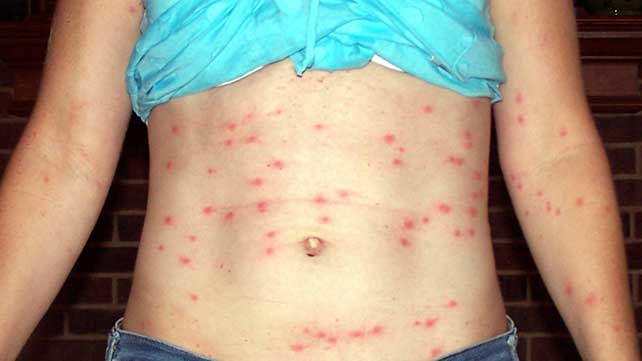
Image Credits: Healthline.com
There are a few different signs and symptoms you can look for if you suspect you have chigger bites. Generally speaking, there are several chiggers that can latch on to you at one time, usually while you are walking through an area infected with them.
Symptoms usually start to be noticeable after the chigger has injected its enzymes into your skin. The actual bite is not really noticeable right away. You won’t immediately see it. You’ll likely feel the itch long before you see a red bump.
Symptoms you might notice include:
The first thing you are likely to notice is the itching, which might feel really intense right after you’ve been bitten. It is typically most intense right after the bites and the intensity usually lasts for one or two days following the bites. It will be very hard to refrain from scratching and we will discuss how best to treat the bites below.
Regular itching can last for several days and it can be close to two weeks before the areas impacted go back to normal.
Once the chigger eventually falls off, which can take multiple days, you are left with a host of red bumps. It isn’t likely that they will take that long to fall off given that you probably scratched right away, but it is still possible.
You might notice that there is a brighter red dot right in the middle of the bites. In general, the bumps look like welts, pimples, or hives.
It is highly unlikely that you would be bitten by just one chigger so you’ll see a lot of bumps. There are also several locations on your body that are most attractive to chiggers.
Pay Close Attention
Given that they have an affinity for folds in the skin, you’ll want to pay closest attention to certain areas of your body. These include the area around your ankles as well as your waist, behind your knees, crotch area, and armpits.
How To Prevent Chigger Bites
You can prevent bites by taking just a couple easy and straightforward precautions. These are often the same precautions you would take when trying to avoid other biting insects. To help prevent chigger attacks, follow the guidelines below:
1
Use A Quality Insect Repellent
We have highlighted our top five chigger repellents below. (skip this section)
When you choose a repellent, ensure it has DEET in it. If you don’t want to use a repellent, you can choose to wear clothing that has been treated with an insecticide.
Make sure that you pay attention to the application of your repellent. You want to ensure you apply it where you are most likely you get bites. This includes the cuffs of your clothing, along with the neckline of your shit. You also do not want to forget to put it on the top parts of your socks.
Sometimes natural sprays can also work. If you want to go this route, choose one that has oils made with tea tree, germanium, jojoba, lemon grass or citronella.
These oils tend to have repellent properties, as you likely know since citronella is often used to repel other insects, namely mosquitoes.
2
Clothe Yourself Properly
Wear proper clothing while outdoors. Do not make it easy for chiggers to get to you. That means wearing long pants and long sleeve shirts.
You should also tuck the legs of your pants into long socks. Since we know the areas of the body that chiggers prefer to bite, you can also pay special attention to those places, making sure they are fully covered.
3
Mow Lawn and Weeds Regularly

If you are worried about being in your own yard, you can help limit the presence of chiggers by making sure you mow your lawn and weeds regularly.
You can also keep thick vegetation to a minimum and try to eliminate any shade or moisture, which is where chiggers are likely to live.
4
Keep Moving
Stay in motion as much as is possible. The worst chigger attacks tend to happen when you are either laying down or sitting still.
If you must stay still, try to avoid laying where you know it is likely chiggers will be hiding, such as in thicker grass or in areas that have a lot of moisture.
5
Brush off
Brush any skin you have exposed. If you are going to be outside for a prolonged period of time, brush your skin every thirty minutes or so. This can help get chiggers off of you if they are attached. You may get to avoid some bites this way.
6
Use Sulfur
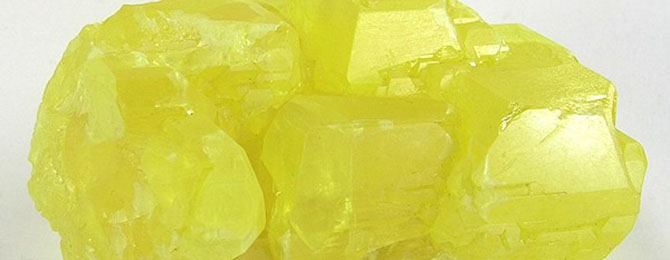
Sulfur powder has a very strong smell and chiggers don’t usually like strong scents. Good places to sprinkle the powder include in your socks and shoes, which is where the chiggers are likely to gain access to your skin and in your shirt.
Sulfur has been shown to help deter chiggers but you can also try other substances that have very strong scents.
7
Use Permethrin
There is a spray that is designed for use on clothing to repel chiggers. It is known as permethrin.
It is ideal for spraying on your socks, shoes, pants and other clothes when you outdoors. When you are applying this spray, make sure to cover the inner and outer surfaces of your clothes.
Moreover, it is important to ensure that the repellent dries before you put on the clothes.
5 Best Chigger Repellents
As mentioned, one of the most reliable preventative measures you can take is using a good chigger repellant.
Since preventing chigger bites is far more favorable than treating the itch following bites, we’ve highlighted the five best chigger repellants you can find.
Below, we’ll give you an in-depth review of each of them. These products were selected based on their efficacy and each of them provides unique protection against chiggers. Most also protect against other biting insects as well.
1
Repel Insect Repellant Sportsmen MAX
- REPELS: Creates a barrier against mosquitoes, including...
- CONTAINS 40% DEET: Provides long-lasting protection in the...
- DEVELOPED FOR OUTDOOR ENTHUSIASTS: Especially for campers,...
This repellant is made with a formula that contains 40% DEET. This will provide more protection when your outdoors or in heavily wooded areas. In fact, the 40% DEET is one of the highest concentrations of DEET you can get in an aerosol.
Not only does this repellant work to protect against chiggers but it also repels fleas, biting flies, ticks, gnats, mosquitoes. The repellant also works against mosquitos that may be transmitting West Nile Virus.
This version of the repellant is available in a four-ounce bottle, but the manufacturer offers other packaging as well. Repel makes pumps, aerosol sprays, wipes and lotion.
The active ingredients in this repellant include:
This repellant will give you ten hours of protection against all biting insects. It is easy to apply, and you should use just enough to cover all of your exposed skin. You should apply it sparingly to your face and you want to avoid your mouth and eyes altogether.
Pros
Cons
2
Sawyer Picaridin Insect Repellant
- Safe for use on the whole family, long-lasting insect and...
- Fragrance-free topical insect repellent with 20% Picaridin...
- Very comfortable to wear on your skin, it's ideal for all...
This repellant is free from fragrances and contains 20% Picaridin. It is non-greasy and provides protection for the whole day. It repels not only chiggers but also disease-carrying ticks and mosquitoes.
The lotion is effective for up to 14 hours against ticks and mosquitos. It is effective for up to 8 hours when repelling chiggers, sand flies, gnats and biting flies. So, if you are going to be out for the full day, you want to bring it with you and re-apply as needed.
We like that this is a lotion and not a spray. It is one of the reasons it is in our top 5. Lotions always seem to last longer than sprays, given that they evaporate much more slowly.
One drawback to lotion is that it cannot be applied to clothing as sprays can. If you really want protection, you likely have to use lotion on your skin and a spray on your clothing.
This repellant is safe enough to use on everyone in the family, including small children. It also will not cause any harm or damage to backpacks or clothing.
Pros
Cons
3
Chigg Away
- Relieves itching and discomfort due to non- poisonous insect...
- Repels chiggers (redbugs).
- Great for: Military, Campers, Hikers, Hunters, Backpackers,...
Chigg Away makes our list of top 5 repellants for many reasons, one of which is that it is dual purpose. Not only does it serve to repel chiggers, but it also helps to alleviate the discomfort and itching that comes along with bites. So, if you’ve forgotten to use it effectively to prevent bites, you can make use of it after to treat them.
It doesn’t just relieve the itching that you get from chigger bites either. This product helps with the discomfort you’ll feel with bites from ticks, mosquitoes, fire ants, wasps, bees, and biting flies as well. It even helps with swimmer’s itch.
The active ingredients in this product include 10% Precipitated Sulfur and 5% Benxocaine.
The list of inactive ingredients includes the following:
Pros
Cons
4
3M Ultrathon Insect Repellent Lotion
- UltrathonTM Insect Repellent was initially developed by 3M...
- Advanced 3M formulation creates an effective barrier that...
- Time Release Protection means DEET is slower to evaporate...
This lotion was originally created to serve U.S. Military troops. It is long-lasting and slow release, giving you a total of up to 12 hours of protection. It repels several different insects including biting flies, mosquitoes, gnats, deer flies, fleas, and of course chiggers.
It is also sweat and splash resistant. It uses 3M Polymer Technology to help optimize the effects of DEET. It does so, in part, by time controlling the release of DEET. It basically works longer while using less DEET.
It comes with a 5-year guarantee and has been rated as a top insect repellent by independent testing labs. Many other products use alcohol while this product uses the time release technology to make it last longer.
Needs to be applied with handsPros
Cons
5
Ben’s 100% DEET Insect Repellent Pump Spray
- Ben's 100% DEET mosquito, tick and insect repellent offers...
- Offers 10+ hours of protection against insect-transmitted...
- Ben’s 100% DEET was the first 100% DEET product in the...
It also helps to protect you from Easter Equine Encephalitis, West Nile Virus and Zika Virus, diseased typically transmitted through mosquitoes.
Ben’s 100% DEET Insect Repellant was the very first 100% DEET product that was registered with the EPA. It is made in the United States and is quite easy to apply. The spray bottle makes it very easy to evenly apply on all of your skin and given that it is a spray, you can also apply it to your clothing.
It is fragrance free and small enough to fit in your pocket. The bottle is just 3.4 ounces, which is small enough to fit right in your pocket. It is even TSA-compliant for size. If you plan on camping or being out in the woods for a prolonged period of time, you can very easily carry this spray with you to ensure you stay protected.
Pros
Cons
How To Get Rid of Chiggers in Your Home
Given that chiggers can stay living in your home for quite some time, you may need to know how to get rid of them. There are a few measures to prevent them for staying living in your house, such as the following:
1
Clean Home With Hot Water
Clean your house with hot water. Ideally, you want the water to be at least 120 degrees Fahrenheit or above.
The hotter it is better the cleaning results would be. However, make sure you don't burn yourself when using hot water.
2
Bathe Your Pets Often

While your animals won’t pass the chiggers to you, you don’t want them to get chiggers attached to them.
This makes for discomfort for the animal and it also means that your dog or cat will continue to scratch, which may lead to infection.
Wash them frequently, especially if you see them scratching or suspect you have chiggers in the house.
3
Vacuum often
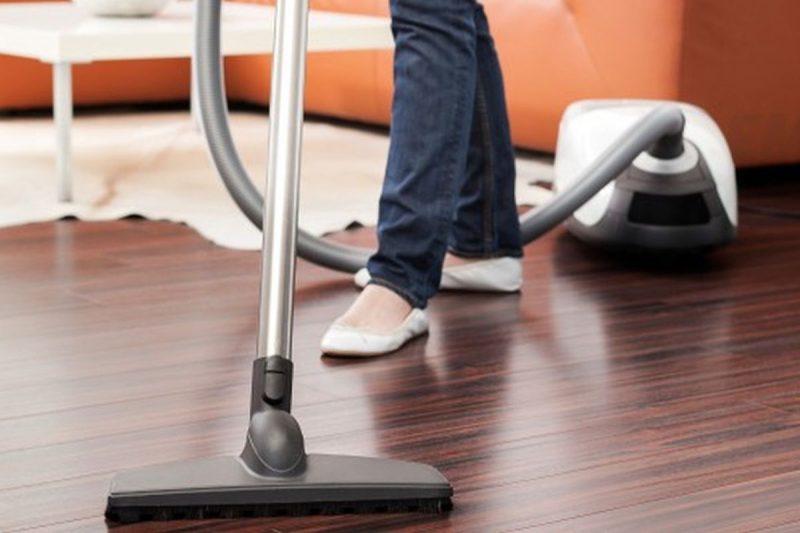
Vacuum as often as you can, but at least once daily. This is especially important during the months you know chiggers will be out. So, in the summer and spring, vacuum as much as you can stand.
Also make sure that you are cleaning out your vacuum when you are done. Otherwise, the chiggers could just stay living in the vacuum until you pass it over your floors again.
It can be easy to forget to clean out the vacuum. Use very hot water to rinse the canister and make sure that you aren’t leaving any chiggers behind.
How To Treat Chiggers in Your Yard
You know that keeping your lawn short in length can help, but there are a couple other things you can do to help get rid of chiggers in your yard.
Prevention is really the best defense against chiggers and if you are going to get bitten, the chiggers will have come from outside.
Treating your yard can be the first real step in preventing a chigger attack.
1
Treat Your Yard
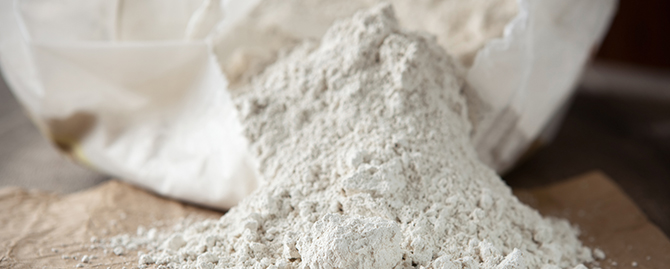
Using diatomaceous earth on your lawn can help you to get rid of existing chiggers. This is a natural remedy and easy to apply. You simply spread it on your lawn, or in places you think chiggers could be lurking.
2
Remove Water Sources
If there are water sources around your yard, you may want to consider getting rid of them. This can limit your chance of getting chiggers. There are two reason for this.
First, reptiles and amphibians will carry chiggers into your yard, and they are often looking for a water source. Secondly, chiggers themselves love moisture. If you limit the potential for moisture, your yard won’t be the most attractive hiding spot.
Furthermore, it is usually other animals that bring the chiggers into your yard. Putting up a fence is often a really useful way to limit animals from entering your yard.
However, that isn’t always a practical choice for everyone. If it isn’t for you, limiting the bodies of water that animals can access or that chiggers like can also help.
3
Prune Trees and Weed Often
Keeping all vegetation as limited as possible will help prevent chiggers from finding your yard attractive. They like thick vegetation.
So, get rid of all weeds that might be around and keep your trees pruned. Basically, you do not want to give them anywhere comfortable to hide out and live.
4
Avoid Sitting Outside
If you aren’t able to closely follow all of the guidelines listed above, you do want to make sure that you are not leisurely hanging out in the areas that have the thickest vegetation.
If you are going to sit out in your yard or on the ground, sit where the vegetation is most limited, use a blanket to sit on, and make sure you periodically dust yourself off.
Follow all of the other preventative measures outlined here and hopefully you'll prevent chiggers from entering your home and lawn.
5
Yard Spray
There is a spray that is applied on the yard so as to get rid of chiggers. This spray can contain any one of various chemicals.
These include esfenvalerate, cyhalothrin, chlorpyrifos, diazinon bifenthrin and carbaryl. These chemicals are very effective in getting rid of chiggers. They will kill them on contact.
As you spray your yard, ensure that you spray the chemical on the parts that are most likely to have chiggers. These include the parts that have tall grass. This offers a quicker solution.
You can identify these spots by testing for chiggers. You can place small pieces of black cardboard on various areas in your yard.
If you see some pink or yellow chiggers on the cardboard after a few minutes, then these areas are infested with chiggers. You should begin with these. Ensure that you test from 10 to 12 spots in your yard.
This is especially true for those areas that are moist and are shaded and those that have dead briars, leaves and weeds are most likely to have chiggers.
If you want more in-depth information on getting rid of chiggers in your yard, you can check out this video.
Treatment for Chigger Bites
If you think that you’ve been in an area where there are chiggers, such as your lawn, make sure you fully examine your body. This is the first step in assessing further treatment that might be needed.
What you are looking for is any red dots (see symptoms). They will be very small and they could be attached to your skin or even moving. Again, it isn’t likely that you’d see an alive and moving chigger.
However, if you want to do a thorough check, you can use a magnifying glass. In that case, you would definitely be able to see any chiggers that might still be attached to you or moving on your skin.
If you find them, there are a number of home remedies available to help you treat the bites yourself.
You can follow these steps:
1
Take a Shower
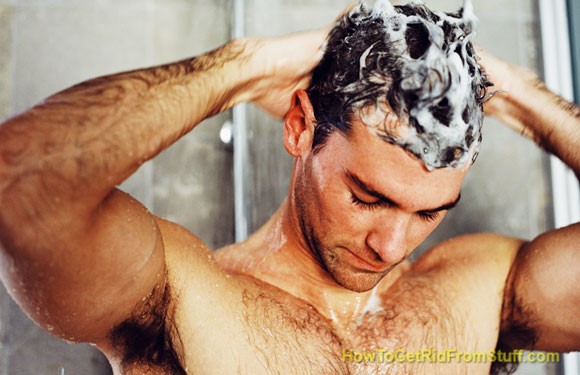
Take a shower or bath as soon as possible. While bathing, make sure you scrub your skin with water and soap. This can help get rid of the chiggers still attached to you.
You want to do this as soon as possible. The longer you wait, the more time you are giving chiggers to bite you.
2
Wash Your Clothes
Next, wash your clothes and anything that may have touched you while the chiggers were attached.
This might include blankets you were sitting on outside or the towels you used to dry off after your shower.
3
Check Your Shoes
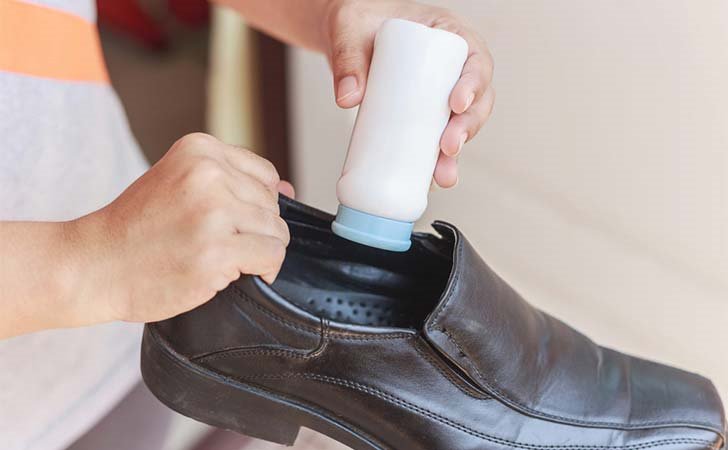
Check and sprinkle some sulfur to deter chiggers
You want to remember to check your shoes, which are easily forgotten. Chiggers love the ankle area which means they might be hiding out in your shoes.
You can even sprinkle sulfur in your shoes, to keep chiggers off of your shoes for good.
4
Anti-itch Cream
Treat your bites with an anti-itch cream. You might consider calamine lotion, menthol, or hydrocortisone.
- Moisturize and Revitalizes Your Skin: Formulated with...
- Combats Itchy Skin, Rashes, Dryness and Redness: The...
- Lightweight and Non Greasy Formula: The creamy lotion goes...
- WHATS INSIDE: Globe brand Maximum Strength Hydrocortisone...
- FAST EFFECTIVE RELIEF: Provides Fast Effective Relief of...
- FRONT LINE ANTI-ITCH: What you need to know: Hydrocortisone...
Taking an antihistamine pill works for some people as well.
Also consider using a cold compress to help alleviate your urge to scratch. Anything over the counter that typically works when you have something that creates an itch should do the trick.
5
Consult a Doctor

In general, chigger bites tend to heal on their own. If yours don’t and you still have irritation after a few days, you might want to consider seeing your physician. In very rare instances, steroid shots are given to help alleviate the swelling and itching.
You want to do anything you can to prevent yourself from scratching. The biggest risk of infection from chigger bites comes from your own scratching.
Home Remedies: The Do’s and Don’ts
The above outlines steps to take when you first think you might have been bitten by chiggers. There are a couple other home remedies you can use to treat your chigger bites as well.
These can be done at really any time and work long after you’ve gone through your initial treatment highlighted above.
These remedies include:
There are also a couple of treatment options that you want to avoid, but that many people still believe are useful.
Because there is a misconception that chiggers burrow into your skin and stay there, you might find literature that tells you to apply bleach, alcohol or nail polish to your skin. The idea behind this is that you are trying to kill or suffocate the chiggers.
You do not need to do this because they are not burrowed in your skin. These methods are entirely ineffective in treating chigger bites.
Once you see the red bite left behind, the damage has already been done. There are no chiggers burrowed in your skin and they did not leave behind any eggs that will hatch there, so take a deep breath and relax! 🙂
At this stage, it is just time to treat the itch and prevent an infection.
Frequently Asked Questions
Although we did our best to cover this topic in detail, however there are some questions that came to our mind when researching this topic. Hopefully, this would help you as well.
What Do Chiggers Look Like?
Chiggers are so small that you typically need a magnifying glass to even see them. It would be very rare to see one with the naked eye. The adult chiggers, which are not the cause of your bites, are usually 1/60 of an inch in size. They have eight legs.
The larvae chiggers, which are what bite you, usually measure smaller than 1/150 of an inch. They are usually red in color, but you may spot some that are orange, yellow, or the color of straw. They do not have any wings and they have six legs.
The ones that are yellow are that color because they turn yellow once they have been biting human skin. They are most often red before they have bitten you.How Long Do Chiggers Live?
Overall, chiggers have a very short lifespan. In general, they live for about fifty to seventy days. Adult female chiggers can live up to a full year and they reproduce for that full lifetime. They lay up to fifteen eggs every day.
Adult chiggers tend to spend the winter slightly below or near the surface of the ground. This is because they need moisture to survive. They stay in areas that have the thickest vegetation and they gravitate toward areas that have or are surrounded by water.
One thing to keep in mind is that chiggers can live in your home for that full lifespan. That’s right. They can live in your house for 50 to 70 days!
Eventually, they will die off from not feeding. However, if they do feed, they will change into adults. Those adults do not feed on humans and will not stay living in your house.
Are Chigger Bites Contagious?
Chiggers and their bites are not contagious. You do not have to stay away from others simply because you’ve been bitten. However, you might find that you are so uncomfortable with all of your itching that you want to refrain from participating in activities you would normally enjoy.
You might also find that the only way you are comfortable is to be covered in calamine lotion, which means you likely don’t want to go out in public.
The itching will subside on its own, with the worst of it lasting just a few days, and you’ll be back to normal. You will be back to regular activities in no time. In your downtime, make sure that you do everything you can to limit scratching.
How Long Do Chigger Bites Itch/last?
The itching that comes from chigger bites can last for several days. The itching can sometimes be so bad that it will wake you from sleep at night.
It is also very hard to keep from scratching but you should remember that doing so can cause an infection if you have any bacteria under your nails.
Your skin will look red and bumpy after you’ve gotten bit by chiggers. You might even find that you get blisters or a rash that looks like hives. On average, it takes about a week or two for your skin to heal.
Chiggers don’t spread disease on their own. They won’t transmit anything to you, which is the good news. However, if you scratch and break your skin, you could get an infection.
Chiggers Burrowed Under My Skin! What To Do?
There is a common misconception that chiggers burrow into your skin and stay there. This isn’t true. Instead, they insert their feeding structures into your skin. They then inject enzymes that break down your tissue. It hardens the skin surrounding the area.
That hardening creates a kind of feeding tube, which is called a stylostome. Chiggers than feed on the tissue that has been destroyed. If they are left alone, which is rare since you start to itch and scratch, they can stay there for quite some time.
Given that you will likely scratch, at least when you first feel itchy, you will likely knock them right off of your skin without even knowing it.
The reason chiggers like areas that are skin folds is because their feeding structures and mouth are delicate. They are always looking to feed at areas of skin that are relatively thin.
In general, they bite you in places that are opposite the areas where you would expect to get mosquito bites.
Do Dogs Get Chiggers?
You’ve just taken your dog for a nice walk and have come home to see your dog scratching up a storm, even more than usual. Dogs are usually pretty well protected from chiggers. That is because their fur adds a layer of protection from bites.
However, that doesn’t mean they can’t be bitten. If chiggers do attack your dog, it will likely be on their head, usually right around the dog’s eyes and ears. This is the area most easily accessible to chiggers, where there is more limited here. It is also an area that is likely very sensitive to your dog.
Fortunately, chiggers do not move from dogs to humans so even if your fur friend has been bitten and has chiggers, they will not make their way to you.
Unfortunately, it can be really challenging to keep your dog from scratching the bites. It is rare that dogs have clean paws and nails which. Means that an infection is more likely for a dog.
You want to make sure you keep an eye on your dog and limit their scratching as much as possible. You may even want to consider seeing your vet to get a cone to place around your dog’s head. This will prevent your dog from introducing any bacteria to the area they are scratching.
Conclusion
Overall, chiggers are incredibly annoying. The scratching may be unlike anything you’ve experienced before. In fact, it is often far more intense than the itch you feel when you are bitten by other insects.
With that said, they don’t pose any real danger other than the risk of infection you experience from scratching the bites.
There are several home remedies you can use to treat the bites after you’ve gotten them. However, more importantly, prevention can keep you from ever experiencing bites at all. Use a solid repellant, such as one of the Top 5 we highlighted above.
In addition, avoid thick vegetation areas as much as possible. Mow your lawn and keep your weeds to a minimum. Finally, make sure you that you wear proper clothing. Avoiding chigger bites can save you a great deal of discomfort later.

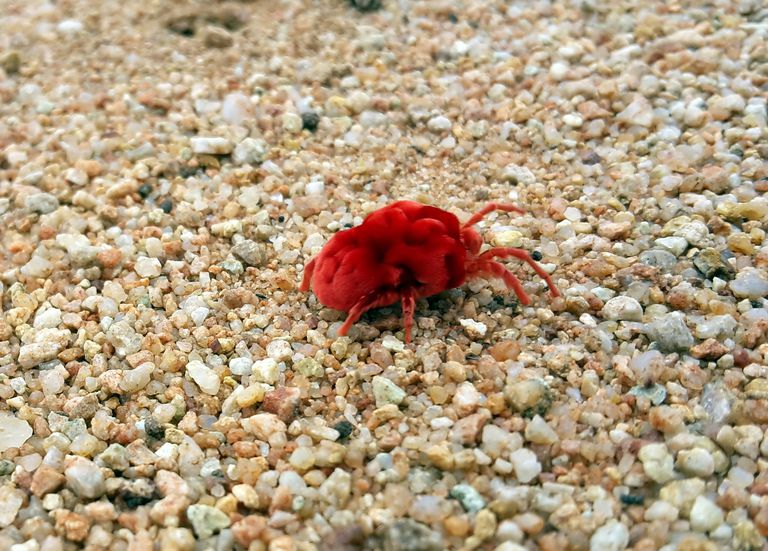
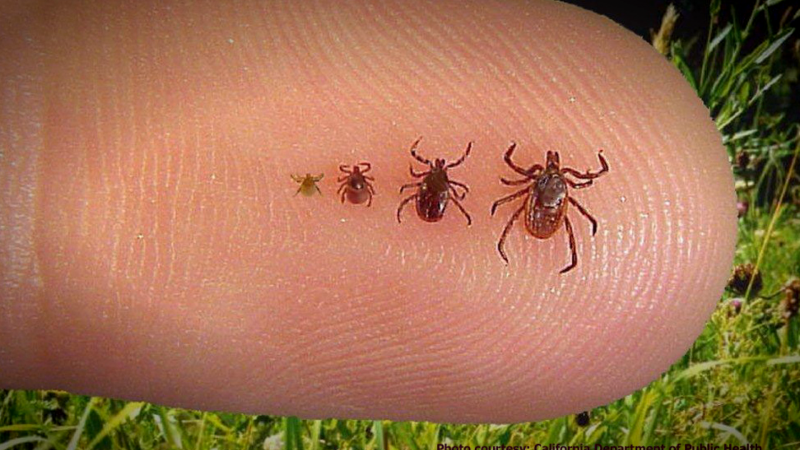
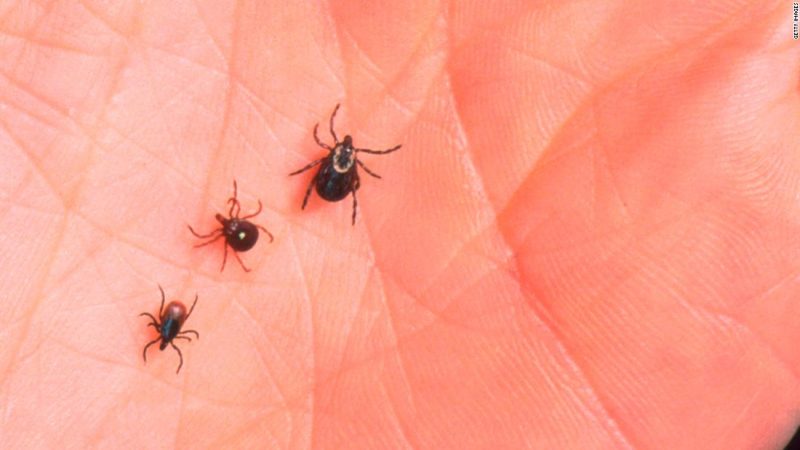
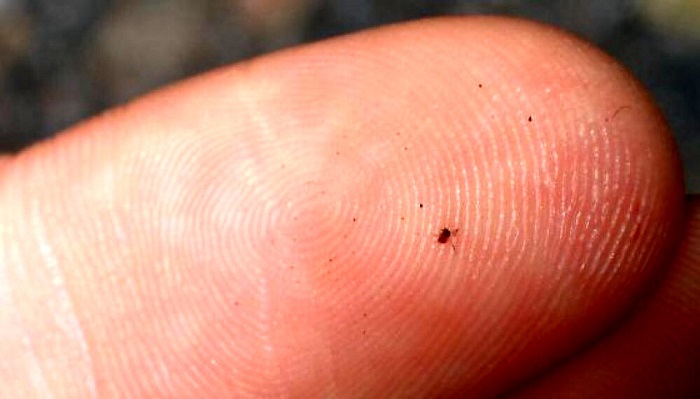







2 thoughts on “Get Rid of Chiggers in Home and Lawn: Prevention and Bite Treatment”